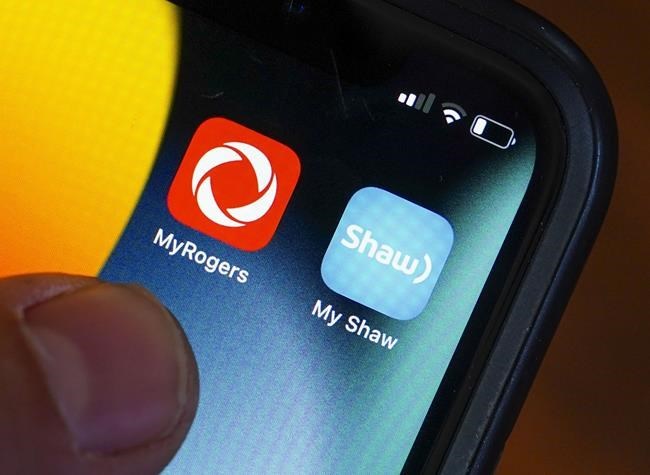OTTAWA ŌĆö Rogers Communications Inc. tried to build the case for a competitive Freedom Mobile during its cross examination of BCE Inc.'s chief technology and information officer, as the hearing on its $26-billion proposed takeover of Shaw Communications Inc. continued Tuesday.
Rogers worked to show that if Quebecor Inc.-owned Videotron Ltd. purchases Shaw-owned Freedom, the combined business would become a significant player in the telecom industry, putting pressure on companies like Bell, especially since Bell does not offer bundled internet and mobility services to consumers in British Columbia and Alberta.
The proposed Videotron and Freedom deal would include multi-service bundles in this region, according to a joint statement from Rogers, Shaw and Quebecor from earlier this year.
Rogers referred to Bell documents comparing carriers that highlight Videotron's penetration strength in the Quebec market.
Additionally, Rogers pointed to Bell's submission to the Competition Bureau in opposition to the Rogers-Shaw merger in December 2021 and its acknowledgement of Freedom as a growing competitive threat.
The proposed sale of Freedom to Videotron is part of Rogers' strategy to get its broader deal across the finish line.
"Rogers and Shaw both want to convince the Competition Tribunal that Videotron will be an effective competitor, but the fact of the matter is that it's untested," said telecom industry watcher Ben Klass.
"Rogers wouldn't willingly offer up Videotron as a suitor for Freedom if it was worried about disruptive competition."
On the first day of the hearing last week, the Competition Bureau said the proposed sale of Freedom to Videotron would create a situation where Videotron is likely to be more "aligned" with Rogers and more vulnerable to anti-competitive actions by Rogers. Rogers responded saying the regulator was underestimating Videotron's "capacities and abilities" and discounting its success in Quebec.
Meanwhile, professor Nathan Miller who was called as a witness by the Competition Bureau Tuesday, argued that competition between Rogers and Shaw is meaningful because the latter has made significant strides in the market.
He said this is largely due to initiatives such as the introduction of the Big Gig plan through Freedom in 2017 and the launch of Shaw Mobile in 2020, which enhanced price competition.
In his analysis, which includes porting data, data on price changes and documents from industry participants, Miller found that when these initiatives were introduced, a substantial number of subscribers moved over from Rogers.
He added that the proposed sale of Freedom to Videotron does not change his view that the broader merger would lessen competition, arguing that if Videotron manages to compete more aggressively in Western sa╣·╝╩┤½├Į than would be desired by Rogers, Bell or Telus, there could be potential for anti-competitive retaliation in Videotron's home market, Quebec, where it has the strongest presence and has its wireline assets.
Rogers pushed back against Miller's report in cross examination, arguing that the analysis missed the mark, and does not do enough to successfully quantify the supposed harm of the sale of Freedom to Videotron.
During the cross examination of BCE's chief technology and information officer Tuesday morning, Rogers also referred to service outages Bell experienced in recent years. Rogers experienced a massive network outage that affected millions of Canadians in July.
The hearing before the Competition Tribunal is expected to last four weeks with oral arguments scheduled for mid-December and aims to resolve the impasse between the Commissioner of Competition and Rogers and Shaw.
The Competition Bureau is one of three regulatory agencies that must approve the deal before it can close, in addition to the CRTC and Innovation, Science and Economic Development sa╣·╝╩┤½├Į.
Rogers is hoping to close the Shaw deal by the end of the year, with a possible further extension to Jan. 31, 2023.
This report by The Canadian Press was first published Nov. 15, 2022.
Companies in this story: (TSX:RCI.B, TSX:SJR.B, TSX:BCE, TSX:QBR.B)
The Canadian Press



